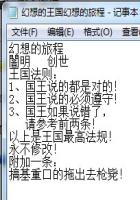In looking over the book in which the names and accounts of the subscribers were entered, he amused himself by wondering what sort of persons they were who had out certain books. Who, for instance, wanted to read "The Book of Cats," and who could possibly care for "The Mysteries of Udolpho"? But the unknown person in regard to whom Mr. Tolman felt the greatest curiosity was the subscriber who now had in his possession a volume entitled "Dormstock's Logarithms of the Diapason.""How on earth," exclaimed Mr. Tolman, "did such a book get into this library? And where on earth did the person spring from who would want to take it out? And not only want to take it," he continued, as he examined the entry regarding the volume, "but come and have it renewed one, two, three, four--nine times! He has had that book for eighteen weeks!"Without exactly ****** up his mind to do so, Mr. Tolman deferred taking steps toward getting an assistant until P.
Glascow, the person in question, should make an appearance, and it was nearly time for the book to be brought in again.
"If I get a boy now," thought Mr. Tolman, "Glascow will be sure to come and bring the book while I am out."In almost exactly two weeks from the date of the last renewal of the book, P. Glascow came in. It was the middle of the afternoon, and Mr. Tolman was alone. This investigator of musical philosophy was a quiet young man of about thirty, wearing a light-brown cloak, and carrying under one arm a large book.
P. Glascow was surprised when he heard of the change in the proprietorship of the library. Still, he hoped that there would be no objection to his renewing the book which he had with him, and which he had taken out some time ago.
"Oh, no," said Mr. Tolman, "none in the world. In fact, Idon't suppose there are any other subscribers who would want it.
I have had the curiosity to look to see if it had ever been taken out before, and I find it has not."The young man smiled quietly. "No," said he, "I suppose not. It is not every one who would care to study the higher mathematics of music, especially when treated as Dormstock treats the subject.""He seems to go into it pretty deeply," remarked Mr. Tolman, who had taken up the book. "At least, I should think so, judging from all these calculations, and problems, and squares, and cubes.""Indeed he does," said Glascow. "And although I have had the book some months, and have more reading time at my disposal than most persons, I have only reached the fifty-sixth page, and doubt if I shall not have to review some of that before I can feel that I thoroughly understand it.""And there are three hundred and forty pages in all!" said Mr. Tolman, compassionately.
"Yes," replied the other. "But I am quite sure that the matter will grow easier as I proceed. I have found that out from what I have already done.""You say you have a good deal of leisure?" remarked Mr. Tolman. "Is the musical business dull at present?""Oh, I'm not in the musical business," said Glascow. "I have a great love for music, and wish to thoroughly understand it.
But my business is quite different. I am a night druggist, and that is the reason I have so much leisure for reading.""A night druggist?" repeated Mr. Tolman, inquiringly.
"Yes, sir," said the other. "I am in a large downtown drug store which is kept open all night, and I go on duty after the day clerks leave.""And does that give you more leisure?" asked Mr. Tolman.
"It seems to," answered Glascow. "I sleep until about noon, and then I have the rest of the day, until seven o'clock, to myself. I think that people who work at night can make a more satisfactory use of their own time than those who work in the daytime. In the summer I can take a trip on the river, or go somewhere out of town, every day, if I like.""Daylight is more available for many things, that is true,"said Mr. Tolman. "But is it not dreadfully lonely sitting in a drug store all night? There can't be many people to come to buy medicine at night. I thought there was generally a night-bell to drug stores, by which a clerk could be awakened if anybody wanted anything.""It's not very lonely in our store at night," said Glascow. "In fact, it's often more lively then than in the daytime. You see, we are right down among the newspaper offices, and there's always somebody coming in for soda-water, or cigars, or something or other. The store is a bright, warm place for the night editors and reporters to meet together and talk and drink hot soda, and there's always a knot of 'em around the stove about the time the papers begin to go to press. And they're a lively set, I can tell you, sir. I've heard some of the best stories Iever heard in my life told in our place after three o'clock in the morning.""A strange life!" said Mr. Tolman. "Do you know, I never thought that people amused themselves in that way--and night after night, I suppose.""Yes, sir, night after night, Sundays and all."The night druggist now took up his book.
"Going home to read?" asked Mr. Tolman.
"Well, no," said the other. "It's rather cold this afternoon to read. I think I'll take a brisk walk.""Can't you leave your book until you return!" asked Mr. Tolman. "That is, if you will come back this way. It's an awkward book to carry about.""Thank you, I will," said Glascow. "I shall come back this way."When he had gone, Mr. Tolman took up the book, and began to look over it more carefully than he had done before. But his examination did not last long.
"How anybody of common sense can take any interest in this stuff is beyond my comprehension," said Mr. Tolman, as he closed the book and put it on a little shelf behind the counter.















